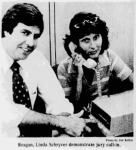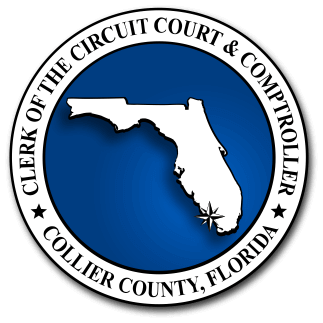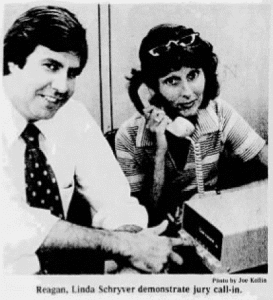Jury selection is vital to our country’s justice system. It allows the court to randomly select citizens to participate in a court proceeding without gender, age, nationality, or racial bias. Administering jury selection is one of the statutory duties of the County Clerk of the Court in Florida. Since the establishment of the Collier County Courthouse 100 years ago, the role of the jury and the methods for selecting its members have greatly evolved.
In general, jury selection is a multi-step process where members of the community are called to the courthouse as prospective jury members for criminal cases. They are interviewed by the judge, state attorney, and defense attorney prior to the hearing. Afterward, they are asked to leave the room and the lawyers decide who will be on the jury. The interview ensures that the people who will be seated as part of the jury will be able to listen to all the facts of a case without bias and decide based on the law.
It is reported that the first term of the Circuit Court convened Tuesday, November 27, 1923, with Honorable George W. Whitehurst, Circuit Judge presiding. The session was held in the Hotel and Store building at the corner of Royal Palm and Riverside Avenues in Everglades City as the county had not yet built a courthouse. The official list of the first jury summoned for the term included: W.H. Doxsee, Bruce Storter, C.A. McKinney, Dan R. House, J.M. Lassiter, Harry P. Thornton, L.V. Renfroe, Albert Addison, C.S. Smallwood, R.L Storter, and Robert Roberts.
It wasn’t until 1949 that Women were allowed to volunteer for jury service in the State of Florida, even though women were first admitted to practice law in the late 1890s. The idea of women sitting on juries in the United States was subject to ridicule up until the 20th century. Some argued women would be corrupted, jury duty would interfere with women’s obligations as wives and mothers, or women were too sympathetic and emotional. Few women registered to voluntarily serve and juries remained largely male.
In 1961, the U.S. Supreme Court upheld Florida’s voluntary jury law for women in Hoyt v. Florida. The court concluded that “despite the enlightened emancipation of women, they occupied a unique position as the center of home and family life.” It was 1967 before the Florida legislature passed a law requiring mandatory jury duty for women. In 1975, the U.S. Supreme Court reversed itself and held excluding women from jury duty was unconstitutional.

Collier County used this Bingo Board to randomly select jurors. Photo courtesy: Centennial Planning Committee
As late as the 1980s, the Collier County Courthouse used a bingo board to assist with the random selection of jurors. On the bingo board, each number represented a registered citizen’s name. Jurors would be selected randomly through the numbers that came out of the wheel after it was spun several times.

Clerk Reagan and Linda Schryver demonstrate jury call-in. Photo courtesy: Naples Daily News, pg 17 on Sun, June 10, 1979.
In 1979, Collier County Clerk of the Courts William J. Reagan implemented the first telephone call-in system to assist citizen jurors. At that time, 50-to-75 prospective jurors were summoned for a week’s jury duty. Through this program, prospective jurors were given a phone number to call after 5:00 p.m. the day before they were scheduled to report. Through a recorded line, they would find out if they should report for service. If cases were settled or continued, the jurors would be dismissed. The program was expected to save taxpayers $25,000 per year, which was nearly half of the previous year’s budget.
With the current technology these tools are no longer being used, and the Clerk’s Office is currently implementing a new Jury Management System (JMS), which will further automate the process, including mobile notifications, automated questionnaires and streamlined check in processes. The names of prospective jurors will be drawn from a quarterly updated list of Florida licensed drivers and identification card holders, 18-years of age or older, who are citizens of the United States, and legal residents of Florida residing in Collier County. This system includes the Microsoft Enhanced Cryptographic Service Provider (CSP) which implements a cryptographically strong random number generator.
Once the names of prospective jurors have been selected, they will receive a summons from the Court specifying the jury service location and date and time to appear. While tools and processes have evolved over time, the significance of jury selection in maintaining the fairness of the criminal justice court and community participation remains the same.

